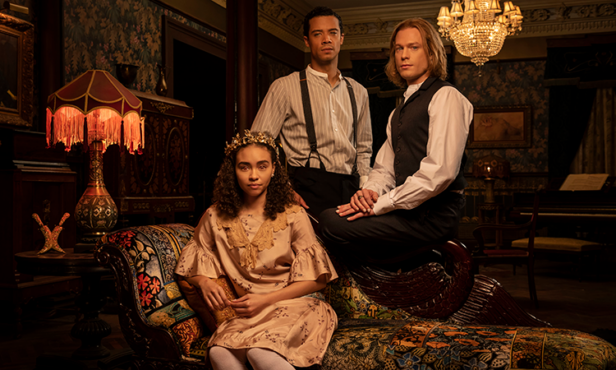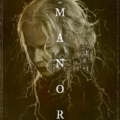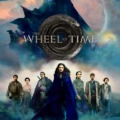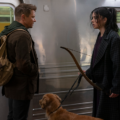“This book is almost 50 years old and there’s a whole new generation that I believe will be very happy with what we’ve done,” says Rolin Jones, Executive Producer and Writer of Interview With The Vampire – a TV series based on Anne Rice’s classic gothic novel.
The book and series follows Louis de Pointe du Lac (played by Game Of Thrones’ Jacob Anderson), Lestat de Lioncourt (Sam Reid) and Claudia (Bailey Bass), whose epic and decades-long story of love, blood, and the perils of immortality, are told in 2022 to journalist Daniel Molloy (Eric Bogosian).
Jones is no stranger to adapting established IPs for television – he was the Executive Producer and Showrunner for season one of The Exorcist and it was Rice’s writing in her 1976 novel that made him excited to take on the series. “There’s incredible beauty and a sense of mourning and loss in the novel,” Jones says. “Anne adapted it from a previously written short story after the death of her young daughter. You can feel it in all the pages, woven in a depth of feeling and some really lovely, lovely language. That level of language in Anne’s novels made me excited for the words I could put into actors’ mouths and I was ready to do a big, mass-appeal genre piece.”
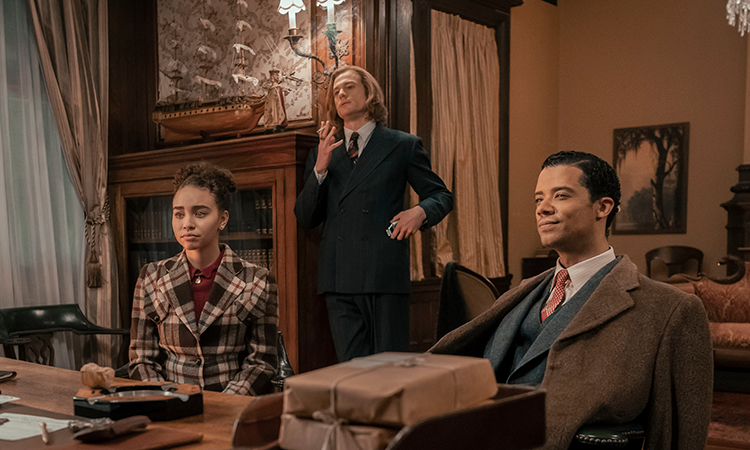
This isn’t the first time Rice’s novel has been adapted. Who can forget the glossy 1994 movie starring Tom Cruise, Brad Pitt and a young Kirsten Dunst. The movie’s screenplay was actually written by Rice and differs slightly from her novel (for instance, in the novel, Lestat is able to entice Louis to become a vampire after the death of the latter’s brother, while in the movie it’s the death of his wife and unborn child).
Jones took Rice’s queue to change some aspects of the novel to work for a TV series. “Fans will always have the novel and there is the movie, which everybody embraced and was very popular. But there’s no reason to repeat that. People who have read Anne’s books closely will quickly figure out how much love and reverence are woven into the first season. AMC has opened up and allowed us to go into these darker places in this novel. It’s really super exciting.”
One of the changes from the novel to the series is the time-setting. For instance, the series starts in the 1900s, rather than the 18th century of the novel. Another change is Claudia’s age – in the novel she’s a five-year-old, while in the series, she’s a teenager. ”
“Claudia is one of the most aggressively interesting characters; a young vampire’s awakening,” says Jones. “But with an eye toward today’s sensibilities, we looked at another very challenging moment in a young girl’s life. If you suddenly transformed into a vampire as a puberty-ridden teen when all the chemicals are going off, that’s the moment you’re frozen in time?! That provided an opportunity to see something exciting and different. Events and things that she’s going through are very similar to the novel. We just hit a little pivot there.”
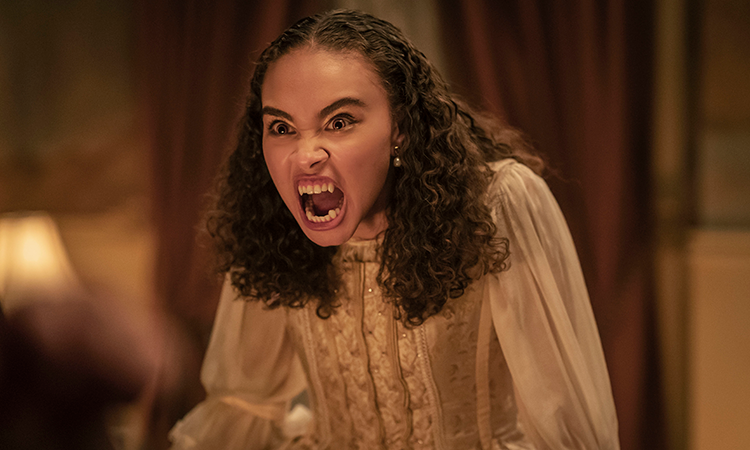
For Jones and his team of writers, the one thing they made sure not to change is what fundamentally makes up Rice’s three central characters: “Louis, Lestat and Claudia are all grafted,” he explains. “They’re going through the same things and in the same dramatic essence of who they are in the novel.”
When it came to casting the roles on Lestat and Louis, the team searched the globe to try and find actors with the right chemistry to carry such iconic characters and their epic story.
“We received tapes from across the US, Europe, and Australia,” says Executive Producer Mark Johnson. “When Rolin saw Jacob’s and Sam’s auditions, he knew immediately they were his leads. AMC has an amazing tradition of finding great actors for their shows.”
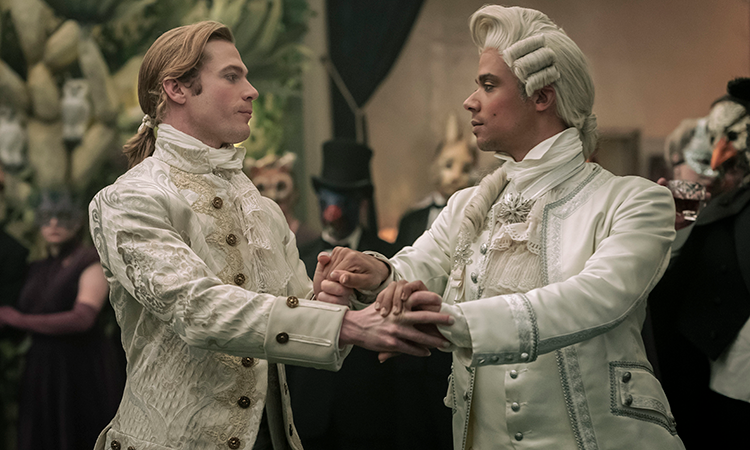
One of the characters that has been expanded from Anne Rice’s novel – at least the first novel – is that of journalist Daniel Molloy, and the series opens with Molloy interviewing Louis in Dubai. “In the novel, Molloy is referred to as the Boy and doesn’t get a name until Queen of the Damned,” Jones explains. “He and Louis met in San Francisco in 1973. He was a budding young journalist working for a kind of a rag newspaper and had a similar addiction to Louis. Louis needed blood and he needed drugs.
“You’ll see this in the series, and now 50 years later, they’re having another interview. We really tried to make the interview part of it very active and just as interesting as the vampire story. There are very important things happening in their interview. It was expanded to adapt it to this format, and with just great respect for Anne.”
Indeed, Jones tells us that fans of the novels won’t be disappointed in the series and should keep their eyes peeled for references to Rice’s books. “If you have read at least the first three novels and you know those books well, you will enjoy a lot of the things that are on the sides and off to the left,” he teases. “In the writers’ room, we talked about Easter eggs. There are two kinds in on our show: stuff we buried in from the novels and things about the building of a universe.”
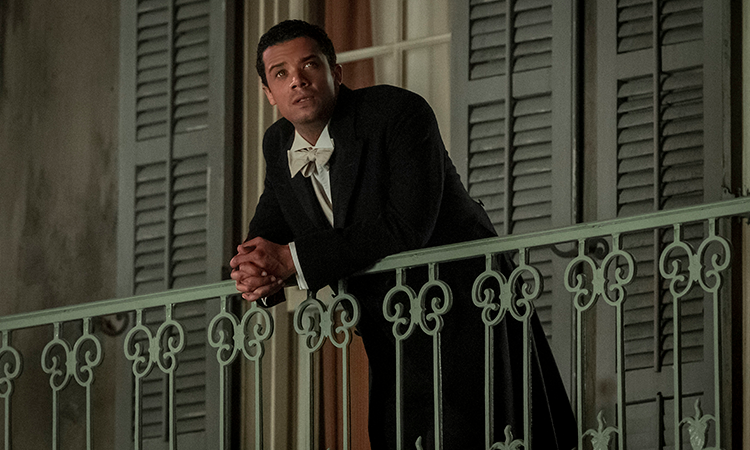
Speaking of building that universe, readers may have to be patient while Jones and the team create a world based on the novels – but the wait will be worth it. “I think that fans have to give us a little leeway,” Jones says. “We’re about to build a universe for them, and Anne didn’t know what she was going to write after Interview with The Vampire. We were given all the things that she wrote to make a series out of it.
“We took it really seriously. We took it as literature, highlighting Anne Rice as a revered author. We hope we can inspire people to revisit these novels because there’s so much in them. Anne’s writing is really quite stunning.”
Interview With The Vampire is available to stream now on BBC iPlayer & comes to Blu-ray and DVD on 6 November
